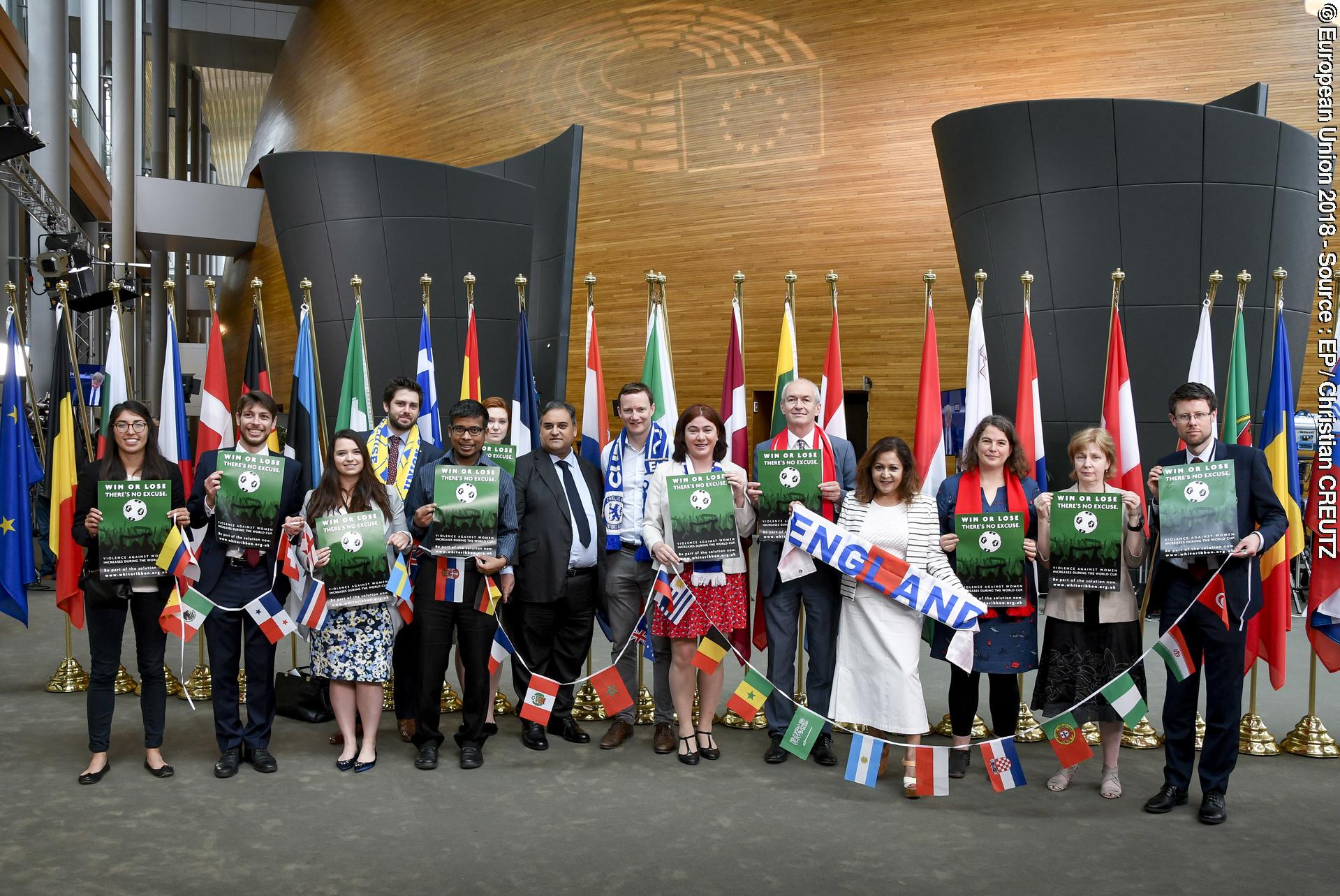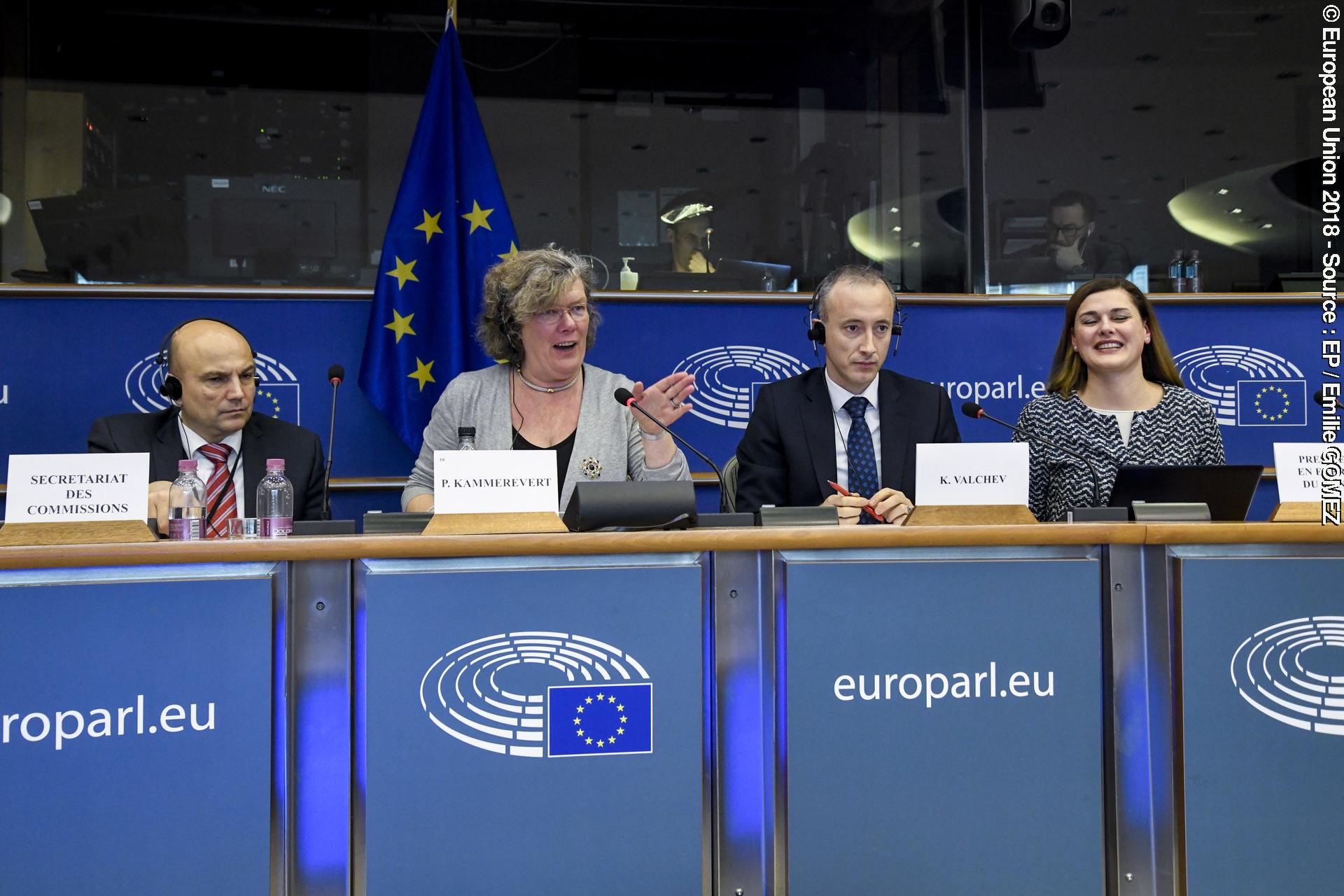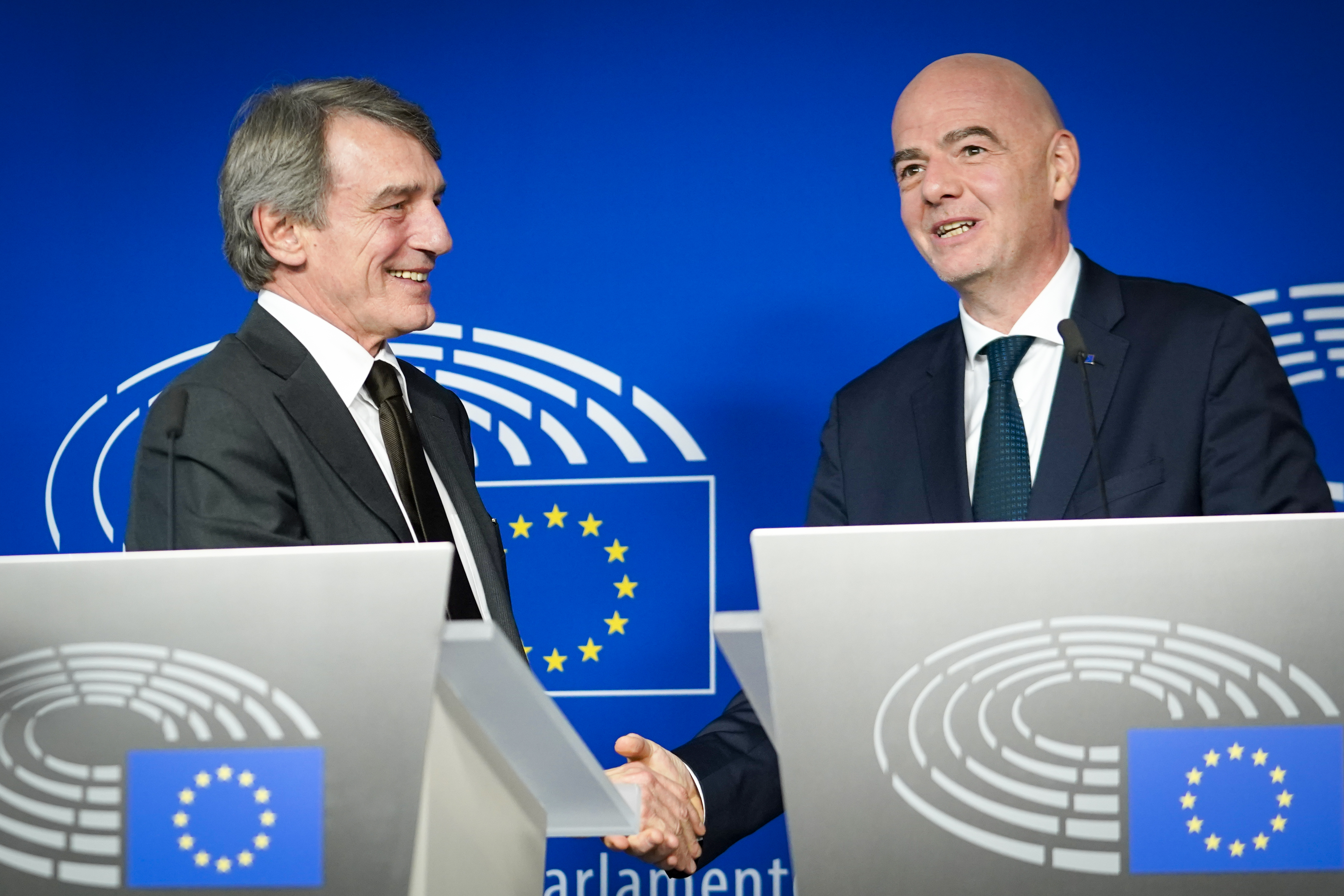Taking a historical perspective: The 1978 FIFA World Cup in Argentina and the 1980 Summer Olympic Games in Moscow
Major sports events and politics are closely intertwined. Well-known historical examples of major sporting events that were used by regimes for political propaganda purposes are the 1978 FIFA World Cup in Argentina and the 1980 Summer Olympic Games in Moscow. The 1978 World Cup took place around two years after the Argentinian military regime's right-wing coup and its violent repression of critics, and the 1980 Summer Olympic Games in Moscow were the first to take place in eastern Europe and the first to be held in a socialist country. In addition, the 1980 Summer Olympic Games unleashed a hitherto, in the history of major sporting events, unprecedented boycott by 60 countries, in protest against the Soviet Union's invasion of Afghanistan in December 1979.
The European Parliament's involvement in the debates on the political reaction to these two major sporting events is a largely unknown aspect of their history. As analysis of the EP's debates on these events the EP's leitmotiv was violations of human rights in both hosting countries. The EP saw raising public awareness of human rights violations in Argentina and the USSR as a moral responsibility at a time when both countries gained high public attention as hosts of these major sports events. Crucially, this moral responsibility for human rights provided the basis for the EP consensus on taking policy action and the question as to how to react to major sporting events at this time was strongly ideologically charged. The USSR's invasion of Afghanistan, as well as the arrest of Andrei Sakharov induced the EP to call for a boycott of the 1980 Olympic Games in Moscow, as had the Carter administration in the US. In the case of the 1978 World Cup, there was also consensus on the need to take policy action against human rights violations in the South American country, as exemplified by the Political Affairs Committee's decision to hold a public hearing.
Neither the boycott of the Moscow Olympic Games nor the public hearing on human rights violations in Argentina, just a couple of days before the start of the World Cup, changed politics in either country. Nevertheless, the debates, especially the public hearing, triggered some effects; including the EP's own policy action towards major sporting events in countries with a poor record on human rights. The public hearing on human rights violations in Argentina, the very first in the EP not related to a European Community competence, generated great media interest in western Europe. All main daily newspapers in the core Community Member States published reports on the speakers' statements. Moreover, the Argentinian authorities reacted to the public hearing, with the Argentinian military government protesting strongly even before the hearing took place. In the course of the public hearing, MEP John Prescott and others called for the release of the leader of the Argentinian human rights movement who was freed by the Argentinian authorities just one day after the public hearing. It can therefore be argued that the EP's public hearing successfully contributed to pressuring the Argentinian regime into this release. Finally, the EP's public hearings became a useful and oft-applied instrument for investigating and protesting against human rights violations in countries organising major sports events.
Read more about the Parliament’s involvement with these sporting events in this briefing from the European Parliamentary Research Service.
European politics and sports today: The 2022 FIFA World Cup in Qatar
In December 2010, FIFA granted Qatar the right to host the 2022 World Cup. The country embarked on an extensive building programme in preparation, involving an estimated 1 million migrant workers. In contrast to the small percentage of expatriates from the West and other Gulf States, Asian and African migrants live and work in harsh conditions. Around 1 million are employed in construction, and 100,000 are domestic workers. Of particular concern is the kafala sponsorship system, which is widely used throughout the six Gulf Cooperation Council States and gives disproportionate power to employers, leading to widespread abuse of migrant workers’ rights.
 White Ribbon campaign against violence to women ahead of the football World Cup © European Union 2018 - Source: EP
White Ribbon campaign against violence to women ahead of the football World Cup © European Union 2018 - Source: EP
Preparations for the World Cup placed the spotlight on Qatar’s poor treatment of migrant workers. In response to international pressure, Qatar has introduced important legal changes to improve the situation of these workers, which the EU has welcomed. However, according to human rights organisations, the country needs to take further steps to stop abuses. Even though Qatar has started to dismantle the kafala system, important elements remain in place. Moreover, ensuring compliance with more favourable labour laws remains a challenge.
Since 2008, the European Parliament has adopted four resolutions addressing the situation of migrant workers in Qatar and called on Qatar to end the 'deplorable situation' of migrant workers and prevent preparations for the 2022 World Cup from being 'overshadowed by allegations of forced labour'. Parliament's Subcommittee on Human Rights of February 2014 focused on the situation of migrant workers in the construction of football stadiums for the 2022 Qatar World Cup. During its hearing, the French footballer, Zahir Belounis, who was trapped in Qatar for over two years, demanded FIFA representatives present at the hearing make a real effort to end the kafala system. In that respect, the EP's public hearings help to put pressure on international and national sports associations to put human rights violations on their agendas when countries with poor human right records host major sporting events. This and other EP public hearings, such as an open letter from a group of 60 Members from five political groups calling on EU governments to stay away from the 2018 World Cup in Russia follow a tradition that originated in EP debates and policy action regarding the 1978 World Cup in Argentina and the 1980 Olympic Games in Moscow.
 Since the entry into force of the Lisbon Treaty, the EU has been entitled to support, coordinate or complement Member States’ activities in sport. Within the European Parliament,sport policy is overseen by the Committee on Culture and Education. Here, the Committee meets to discuss the priorities of the Bulgarian presidency of the Council with Krasimir Valchev, Minister of Education and Science, Krasen Kralev, Minister of Youth and Sport, Boil Banov, Minister of Culture and Petra Kammerevert, Chair of the Committee © European Union 2018 - Source: EP
Since the entry into force of the Lisbon Treaty, the EU has been entitled to support, coordinate or complement Member States’ activities in sport. Within the European Parliament,sport policy is overseen by the Committee on Culture and Education. Here, the Committee meets to discuss the priorities of the Bulgarian presidency of the Council with Krasimir Valchev, Minister of Education and Science, Krasen Kralev, Minister of Youth and Sport, Boil Banov, Minister of Culture and Petra Kammerevert, Chair of the Committee © European Union 2018 - Source: EP
 "FIFA...is an example of many things: it is very proactive for things like culture, respect of others, it obviously has big roots in Europe but it has an impact on all continents. This is why everybody is looking at what FIFA does and what we can do together with FIFA to promote these things in the world." David Sassoli, former President of the European Parliament, issues a joint press conference with FIFA President Gianni Infantino on the 11th of December 2019. Their meeting took place amidst growing controversy about the 2022 World Cup © European Union 2019 – European Parliament
"FIFA...is an example of many things: it is very proactive for things like culture, respect of others, it obviously has big roots in Europe but it has an impact on all continents. This is why everybody is looking at what FIFA does and what we can do together with FIFA to promote these things in the world." David Sassoli, former President of the European Parliament, issues a joint press conference with FIFA President Gianni Infantino on the 11th of December 2019. Their meeting took place amidst growing controversy about the 2022 World Cup © European Union 2019 – European Parliament